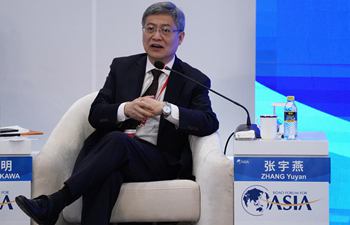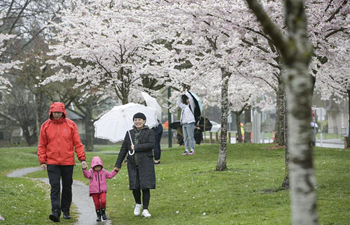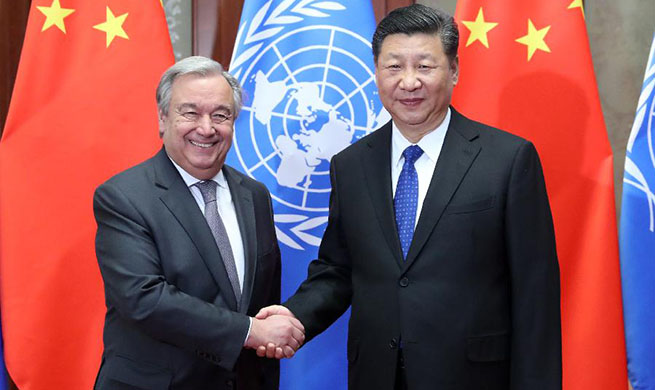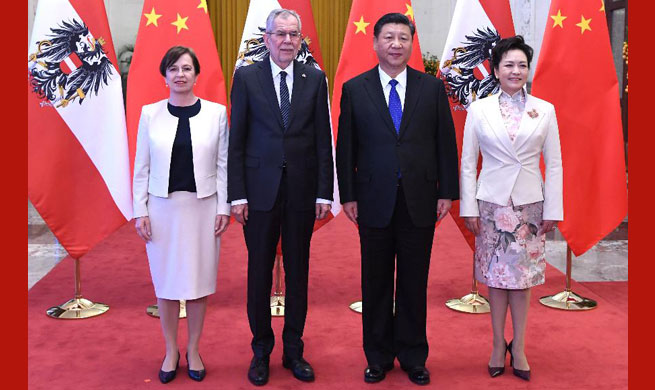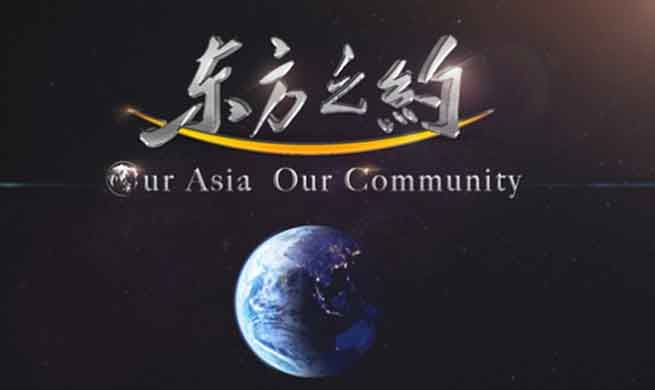BEIJING, April 9 (Xinhua) -- American cherry vendor Marc Pflugrath worries the trade friction between the United States and China will hurt his business.
"I have a lot of concerns about the current actions that have been taken on trade and tariffs. The fact that China is an important customer makes us very vulnerable. I think this is significant, real and serious for rural America," he said.
Pflugrath is one of the millions of American business owners likely to bear the brunt of a potential trade war started by their own government. The United States is one of the largest exporters of fruit through Tmall, the Chinese online retail platform operated by Alibaba Group.
According to Tmall figures, of the 168 billion yuan (about 26.6 billion U.S. dollars) in transactions during the November 11 Singles' Day sales last year, 40 percent were from global dealers and retailers, many of which are headquartered in the United States.
A manager who gave his name as Su, from Taiwan Kingo Fruit Trade Group, said Chinese consumers buy about 10 percent of the United States' cherries every year.
The CIF (Cost, Insurance and Freight) cost of U.S. cherries is about 6 yuan per kilo and that of Chilean cherries is 7 yuan per kilo. But if the tariffs are raised on U.S. cherries, they will completely lose their price advantage and concede the Chinese market to competitors, he said.
"This will be a direct blow to cherry farmers in the United States. We have a stable supply from Chile, and the impact for us is quite limited," he said.
U.S. President Donald Trump announced last Thursday he had instructed the U.S. Trade Representative to consider additional tariffs on 100 billion U.S. dollars of Chinese imports, after announcing plans to impose a 25-percent duty on Chinese imports worth 50 billion dollars.
China said it will "fight till the end at any cost" and take "comprehensive countermeasures."
Hong Kong businessman Stone Lu blasted the U.S. administration's logic on the tariff hike, saying it is unreasonable.
Lu has plastic bag factories in Hong Kong and Changzhou in Jiangsu Province. His company buys technical solutions from U.S. companies Dow Chemical Company and Dupont.
"If the downstream orders for plastic bags are reduced, my factories will be forced to cut production and manpower, but upstream American companies will also bear losses. Their prosperity depends on orders from companies like us," he said.
A tariff hike will cause a drop in orders, and the risks will be borne by each and every company along the globalized industry chain, he said.
In the long term, big, small and medium companies in the United States will become entangled.
"Should a depression be caused, it will be difficult for American manufacturers to endure," Lu said.
"Tariff hikes would prevent Chinese goods from entering the American market, and the American people will have to pay higher prices for the same consumer goods. In a sense, their earnings will be hollowed out. If a trade war breaks out, the United States will hemorrhage jobs," said Yu Miaojie, deputy director of National School of Development at Peking University.
"China-U.S. trade is already deeply intertwined. Free trade and adapting to globalization is the right thing to do," he said.




